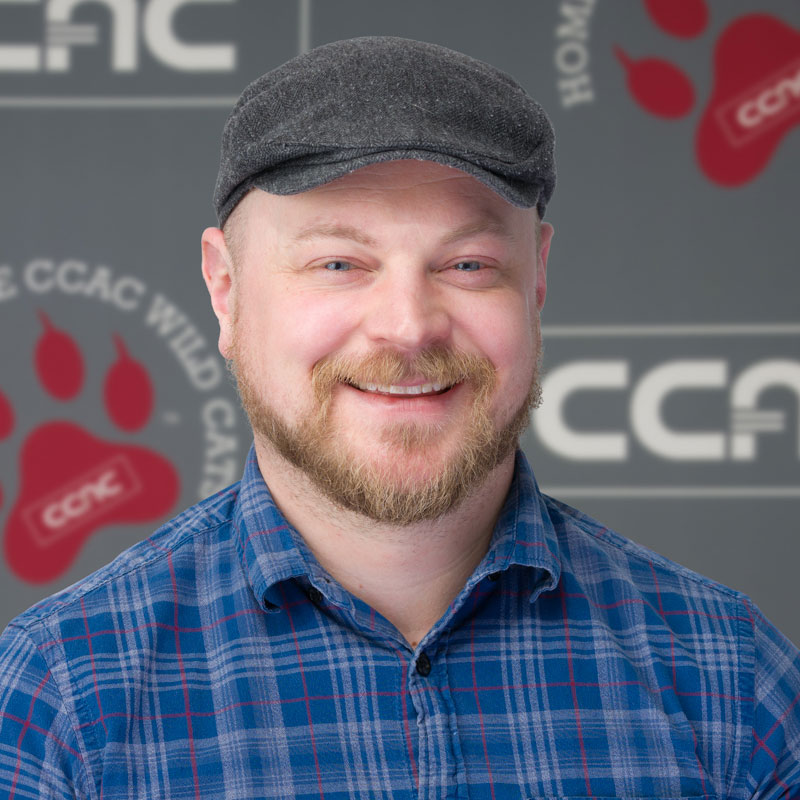Faculty Directory

Andrew Van't Land
Assistant Professor | Humanities
(He/Him/His)
- 412.237.2587
- avantland@ccac.edu
- Allegheny Campus, West Hall 234
- Faculty office hours are available through self-service.
| Degree | Emphasis | Institution |
|---|---|---|
| Ph.D. | Philosophy | University of Kentucky Lexington, KY |
| M.A. | Philosophy | Institute for Christian Studies Toronto, ON |
| B.A. | Philosophy | Trinity Christian College Palos Heights, IL |
Biography
Dr. Van't Land teaches Philosophy as both a theoretical and practical skill set. Practically, he helps students apply critical thinking questions about the nature of reality, knowledge, and values to the everyday assumptions underlying individual lived experience and institutionalized knowledge fields alike. Theoretically, he helps students to understand intellectual history, assigning readings from canonical and extra-canonical primary texts (by a racially, genderly, ideologically, and globally diverse range of authors). He has taught classes such as Introduction to Philosophy, Logic, Ethics, Healthcare Ethics, Business Ethics, Existentialism, Philosophy & Science Fiction, and Introduction to Political Science.
Dr. Van't Land's research has focused on ancient philosophy, social & political theory, philosophy of religion, and critical thinking. He is currently working on a book project intended to help instructors provide students with a more integrated curricular experience of taking classes from different departments. This project is a multidisciplinary dialogue between Philosophy (especially Phenomenology and Philosophy of Science) and other disciplines (such as Cognitive Psychology, Communication/Rhetoric, Mathematics, and Educational Studies). It involves schematizing fundamental categories of interpretation, critical thinking, communication, and debate (including objects, definitions, facts, theories, value judgments, explanations, equations, and arguments).
PUBLICATIONS (REFEREED)
“Bruno Latour’s Detour: From Relativist Rhetoric to Realist Philosophy.” Transversal:
International Journal for the Historiography of Science. Special Issue: “Bruno Latour”
14:1
(2023), 1-10.
“Developing a Philosophy Summer Camp at the University of Kentucky” (co-authored with C. Buchanan, S. Chaudhary, J. Lincoln, C. Graham, L. Dickey, and C. Smith) in Philosophy Camps for Youth, edited by Claire Katz (Lanham, MD: Rowman and Littlefield, 2021), pp. 35-46.
BOOK REVIEWS
Review of Critical Theology: Introducing an Agenda for an Age of Global Crisis by Carl A. Rashke (Downers Grove, IL: InterVarsity, 2016). In Christian Scholars Review 47:2 (2018), 207-209.
Review of Socratic and Platonic Political Philosophy: Practicing a Politics of Reading by Philosophical Review 55:1 (2016), 1-3.
PRESENTATIONS
“Transdisciplinary Categories in Learning, Critical Thinking, and Communication.” Common Hour workshop hosted by the CCAC Center for Teaching & Learning (Webinar, February 2023).
“Mediated Exploitation: Social Reproduction and Labor Aristocracy in Marxist Feminism and Aristotelian Economics.” 59th Annual Meeting of SPEP: Society for Phenomenology and Existential Philosophy (Virtual Conference, September 2021).
“Revealing the Pseudo-Revolution: Heideggerian Openness in/to Fascism.” Critical Race, Feminist, and Continental Philosophy. Diverse Lineages of Existentialism Conference II (Washington D.C., June 2019).
Teaching in person for the first time after teaching online for my first semester.
I teach philosophy to undergraduate students at the Community College of Allegheny County (CCAC) in Pittsburgh, PA. My main pedagogical goal is to help students to do the following: 1. Describe their particular lived experiences (i.e. their beliefs, value judgments, memories, personality and identity qualities, sensory observations, bodily abilities and disabilities, relational and social contexts, etc). 2. Infer their most general beliefs (i.e. their interpretive commitments about the nature of reality, knowledge, and values, by which they make meaningful sense of their experiences). 3. Encounter particular intellectual comrades (who offer better justifications for students' true beliefs) and critics (who challenge their students' false beliefs) among major philosophers throughout history, both within and beyond the Western canon. 4. Apply their revised (pre)theoretical commitments to their ongoing life experiences, informing their actions and beliefs alike. By leading my students back and forth between the particular and the universal (call it dialectics, or hermeneutics, or even the philosophical rhythm of the scientific method), I strive to nudge (or occasionally push) us all a little closer to the True, the Good, the Just, and the Beautiful.
I play a number of instruments (piano, guitar, bass, banjo, mandolin, tuba).
"Life can only be understood backwards. But... it must be lived forward." —Søren Kierkegaard
